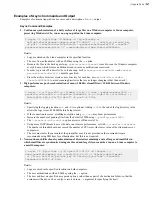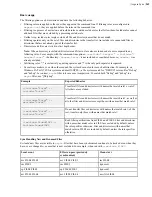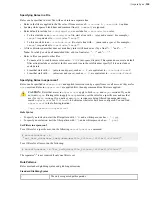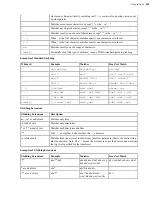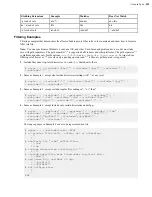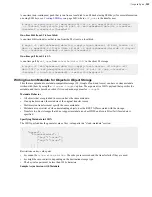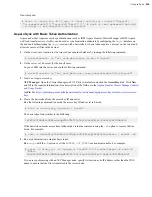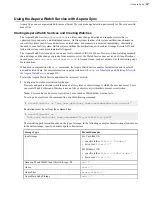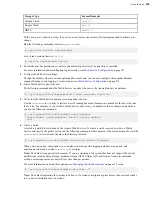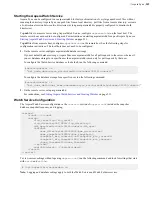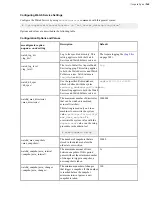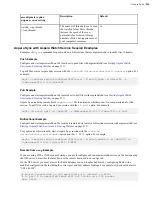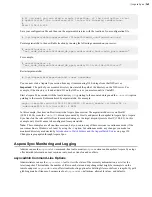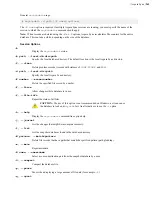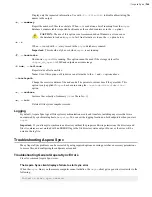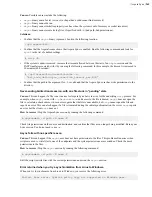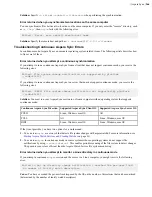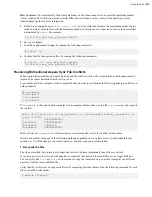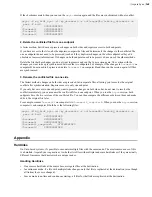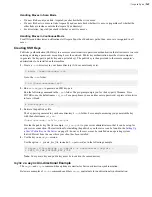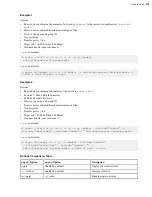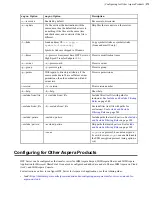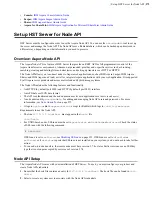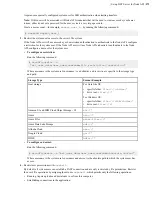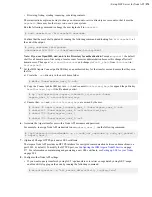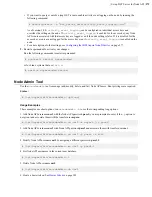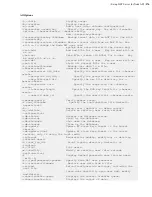
| Aspera Sync |
261
asconfigurator option
aspera.conf
setting
Description
Default
watchd_scan_threads
<scan_threads>
The number of threads to use to scan
the watched folder. More threads
increase the speed of the scan,
particularly for folders with large
numbers of files, but require more of
your computer's resources.
16
Aspera Sync with Aspera Watch Service Session Examples
Examples of
async
commands for push, pull, and bidi sessions that use asperawatchd to identify files to transfer.
Push Example
Configure and start asperawatchd on the local host to push files with asperawatchd (see
on page 211).
To push files, start a Aspera Sync session with the
--watchd
datastore:host:port[:domain]
option. For
example:
async --watchd redis:localhost:31415:root -N watch_push -d /data/D1 -r
adminuser@10.0.0.1:/data/R1
Pull Example
Configure and start asperawatchd on the remote host to pull files with asperawatchd (see
on page 211).
Aspera Sync reads the remote host's
aspera.conf
file to determine whether or not to use asperawatchd for the
session. To pull files, start a Aspera Sync session with the
-K pull
option. For example:
async -N watch_pull -d /data/D1 -r adminuser@10.0.0.1:/data/R11 -K pull
Bidirectional Example
Configure and start asperawatchd on the local and remote hosts to start a bidirectional session with asperawatchd (see
Starting Aspera Watch Services and Creating Watches
on page 211).
To synchronize bidirectionally, start a Aspera Sync session with the
--watchd
datastore:host:port:domain
option and the
-K BIDI
option. For example:
async --watchd redis:localhost:31415:root -N watch_session -d /data/D1 -r
adminuser@10.0.0.1:/data/R11 -K BIDI
Remote from
ascp
Example
If you are using CIFS or NFS mounted storage, you must configure and run asperawatchd service on the host running
the NFS server, but neither the local host nor the remote host need to be configured.
On the NFS server, you must also set the Redis database to a non-loopback address by configuring Redis with a
modified configuration file including the correct port and host address bindings. For example, if your host address is
"10.54.44.194":
# Accept connections on the specified port, default is 6379.
# If port 0 is specified Redis will not listen on a TCP socket.
port 31415

